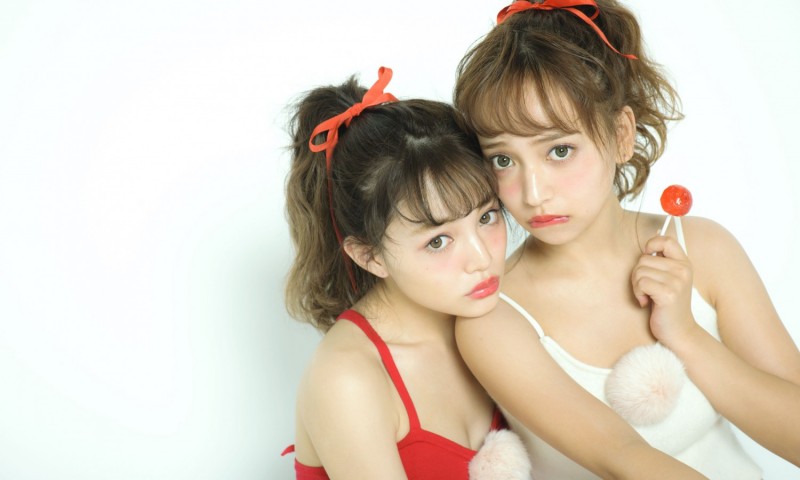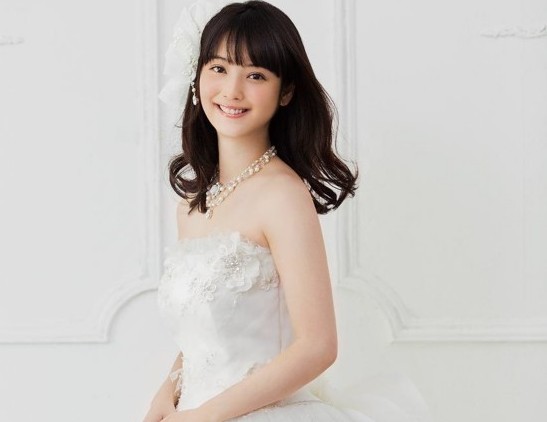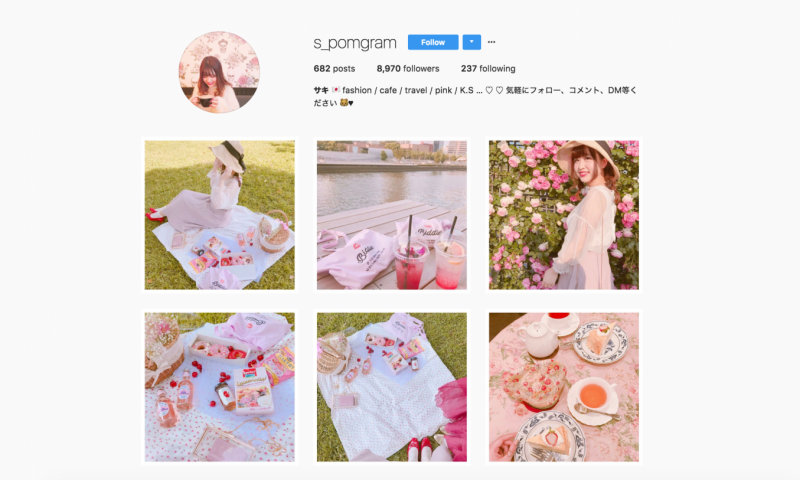
Instagram Famous in Japan: From Ordinary Girls to Social Media Superstars
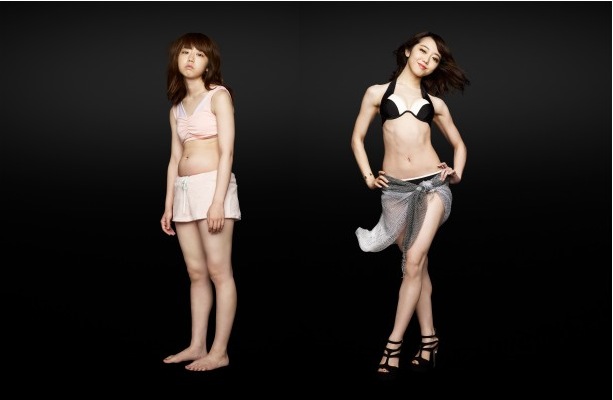
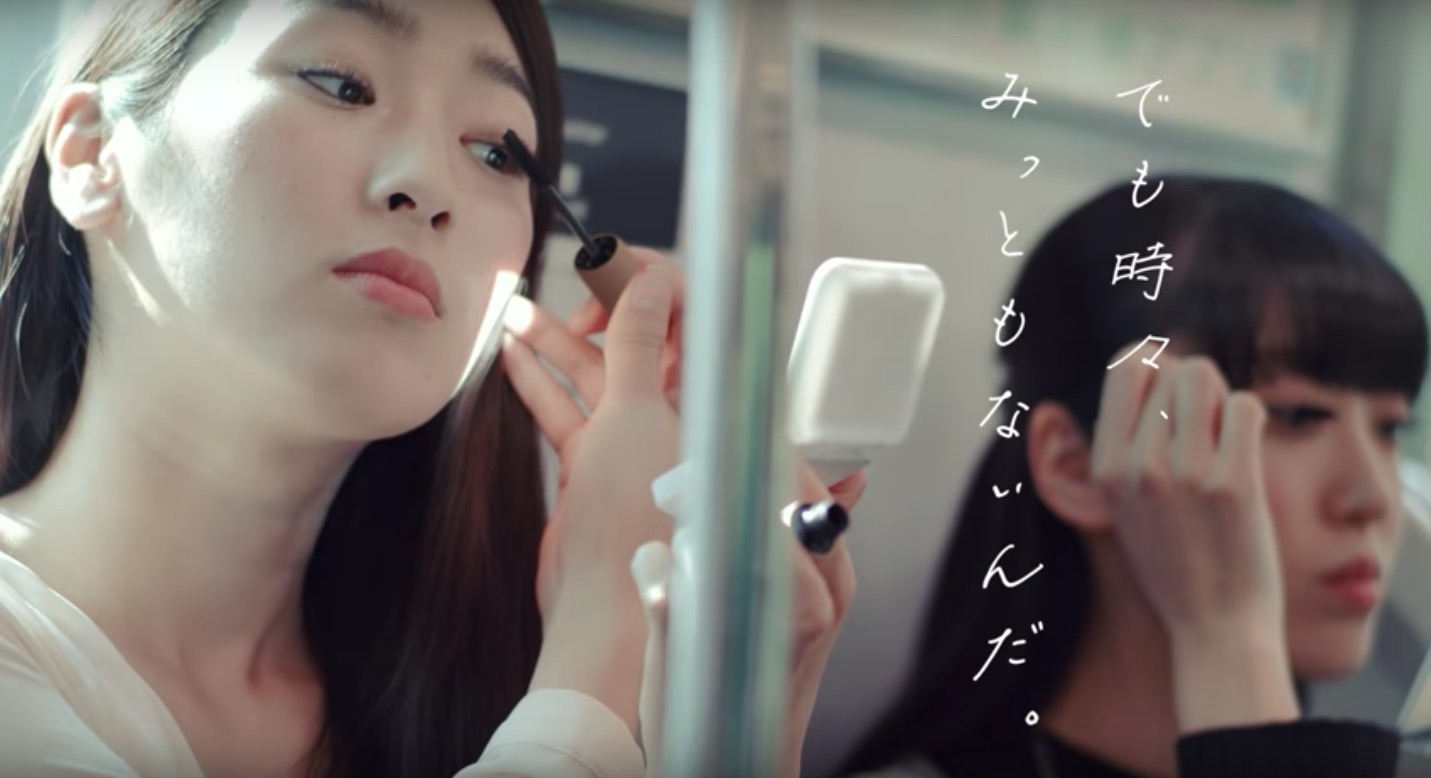
The image is a screenshot from the video "Shanai Keshou"
Women in the advertisements are all beautiful; represented to nudge the women in the real world to look and be as beautiful as the models and actresses on screen. But in 2016, there were some controversial issues regarding advertisements and their portrayal of Japanese women. Because of the online environment, the flames of criticism towards these advertisements led to not only to the shut-down of the advertisements in public, but also spread the online discussions regarding the issue.
One was about the train manner and etiquette poster and video advertisements made by one of the railway companies. The female protagonist in the video, a young Japanese woman who moved to Tokyo to start her new campus life, mentions, “Urban women are beautiful, but they are ugly sometimes.”
This video was first released as a series (along with the “smartphone zombie” walking at platforms) for campaign to endorse manners and etiquettes on the train, which spurred to backlash by many of the female viewers. One of the main reasons was how the women putting make-up on the train is regarded to be “ugly” or “mittomonai” in Japanese, told by the subjective opinion rather than objective reasoning. The online debate has flamed as there are more train manners that need to be discussed and the very first topic was about how women are seen from men. Yes, doing make-up on train may be causing trouble as eye-liner might spill on someone next to you or the smell of nail polish, but there are other unresolved troubles on trains like the gropers, or giving seats to the elderly.
Another portrayal of Japanese woman in advertisement that flamed up in to debate was the one of the biggest cosmetic brand releasing an advertisement for new line of cosmetics, and mentioning how 25 year-old female are not a “girl” anymore.
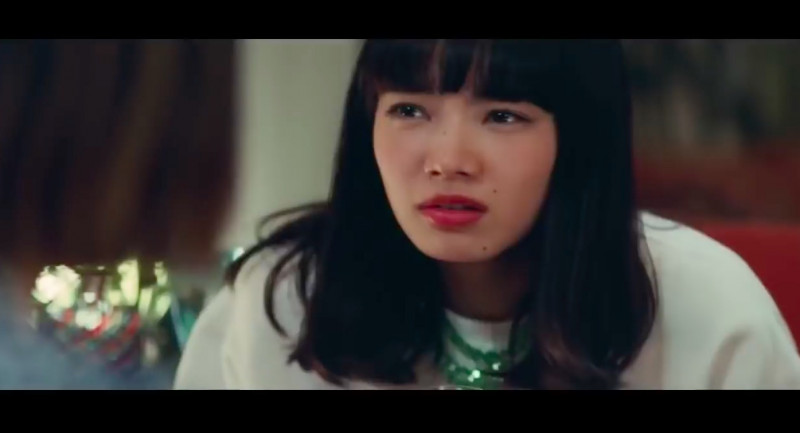
The image is a screenshot of the official video “25 years old is not a “girl” anymore”
The three 20-something women are celebrating the birthday for one of the girlfriend turning 25 years old, who seems to be unhappy about turning 25. But the other friend strongly mentions to her, “You are NOT a girl (onna no ko) anymore” and the other friend mentions sadly, “Welcome to the real world.” You won’t be pampered by others because there will be younger female, your friends will upload pictures of the wedding and you start to feel impatient, and the weapon to be “kawaii” isn’t no worth it anymore…The listings of the turning point for women to be 25 is unfortunate. But the birthday-girl mentions, “But isn’t there ‘kawaii’ adult too?” and the friend strongly agrees with that.
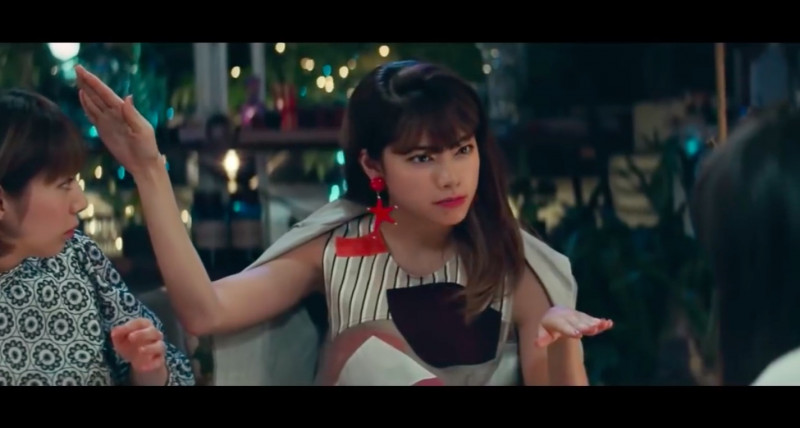
The image is a screenshot of the official video “25 years old is not a “girl” anymore”
The advertisement wraps up “To update the ‘kawaii’” as the three girls are pumped for not to look ‘kawaii’ as the teenagers, but rather to update the “kawaii.” The video was to advertise the new cosmetic line for the young women who are becoming an adult. The advertisement’s original intension might be to sell to those young women who are growing to be adult and independent to buy and use the new cosmetic line for their new look, but apparently, it only added more fuel to the fire that women are judged by their age.
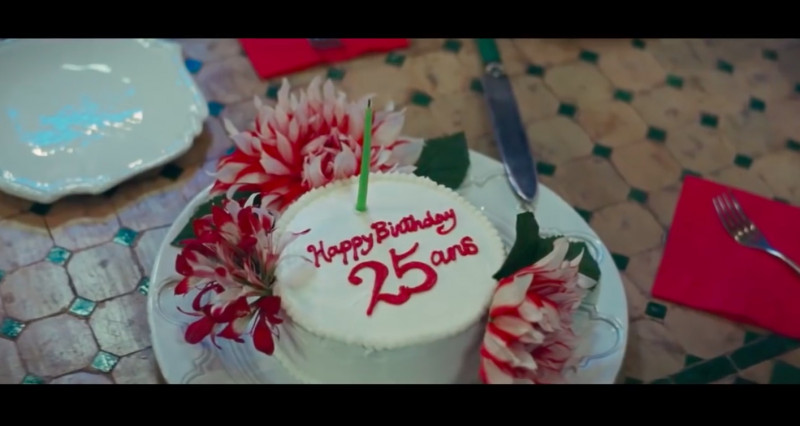
The image is a screenshot of the official video “25 years old is not a “girl” anymore”
Unfortunately, the official video is not available anymore as it was deleted by the brand after the issue.
Then, what does this imply? Regarding with the make-up on the trains, the debate has been going on for a long time. As there are more women working outside homes, women are also expected to look perfect at work as well. Therefore, make-up is the expectation for women to have it done everyday, that men don’t have to do. Not all of women’s working environment are required to put their make-up on, but still, they are expected to have it done, somewhere outside of men’s sight. Hence, doing make-up on train, where men are also looking, is unacceptable act for women should do. This is not only from men’s perspective, but there are women who do feel uncomfortable for other women doing make-up on trains for some other reasons too. From my opinion, for example, is that I’m not also a fan of women doing make-up like putting on eyeliner on the train ride, but I wouldn’t really care much if they’re just putting on lipstick. So, there might be some degree to this debate from different perspectives and values, as well as I might think that she might be running late to meet up with her boyfriend.
Regarding the cosmetic video advertisement, it reminded me of old phrase, “Women are the same as Christmas Cakes,” as a metaphor that Women’s age as Christmas Cakes; as Christmas Cakes are no worthy and no one will buy it after the 25th (of December). There is no clear origin for this phrase but it has emerged around the early 1990’s, the period the marriage rate was still high for women in the early 20’s. As there are more women working and socially and financially independent, the marriage age has risen and the phrase has become more unrealistic and a joke. And of course, judging women of their female-ness (joshi-ryoku) by their age is a sexual harassment. In regards with the message that this is delivering, yes, you are not a kid anymore when you are 25. But using the term “onna-no-ko (girl)” is valued term in Japanese that youthfulness is much preferred and inclined towards the audiences. Therefore, the catchphrase saying that “you’re not a girl anymore when you turn 25” is confronting for Japanese women. But somehow that video advertisement was approved to be aired in public. So, is this video also suggesting that women in 25 are not-worthy? Then, the Japanese value really haven’t changed since that “Christmas Cake” metaphor, for sure.
I have talked with my Japanese female friends about these flaming issues and it’s not that all the women would feel offensive towards these direct message. Yes, they do understand the message that we all should be responsible when you are 25, or it would be trouble when you put make-up on a rush-hour trains. But Japanese women are also intelligent women that they are smart enough that these messages are delivered in a top-down way, that they are told to forcefully to think or to be a certain way that those “great” men tell them to be/do. And many of the Japanese young women are frustrated about the fact how these messages are delivered that these advertisements were made from the dominantly, masculine, and traditional perspective.
Previously, I have written about the flaming debate of whether Japanese women are preferred to be superficially cute than their intelligence and skills. And maybe the song was spurred to flame because of the fact that the lyric was written by the AKB48 producer, Yasushi Akimoto.
“I Prefer Dianna Agron Over Einstein” : Is Charm Valued Over Cleverness in Japan?
And in this previous article as well I have written, “Whether females being cute and vulnerable would be seen as more attractive to men than being independent and intelligent. It probably didn’t help that the lyrics for the song were written by Yasushi Akimoto, the 60-year old male lyricist and producer of AKB48 and their sister groups (including HKT48) who is also married to Mamiko Takai, a former idol who was a member of Onyanko Club, another group he produced.”
Surely, there are women who would agree to the message of doing make-up on train is unfavorable, and/or, yes, you’re not a kid anymore when you turn 25! But somehow, the common anger with these two advertisements somehow lead to the vantage point is that the overall issues are not taken equally with the others. For example, what about the troubles on train that men would also cause like being drunk, or manspreading? What about a message towards men turning 25, like stop being a manchild?
Or, what if these ads were more directly delivered as something that has the risk to it? For example, besides the judgmental train advertisement, “Ugly women put on make-up on the train,” what if the advertisement was something like “Warning: Not to poke your eyeballs with Mascara brush”? What if, instead, “You’re not a girl anymore when you are 25” catchphrase, “Your skin changes when your 25, so change it to the foundation to better your skin to be more ‘kawaii’”? What we got to be aware of more, is that it is not a one-way street of value, but rather there are diversity of perspectives now and we should consider how we can deliver the message without hurting everyone.
And surely, not all Japanese women are passively taking in and become submissive to dominant men. One of the positive news regarding Japanese women this year was when Yuriko Koike became the very first female Governor of Tokyo and working to better the lives for people in Tokyo and to prepare for the 2020 Tokyo Olympics. She not only stoically works to improve Tokyo, but also won an award for Best Dresser of 2016. She has proven that not only Japanese women can work as hard as men, also to look beautiful as well. Although Japan still has the lower rate of female leaders and entrepreneurs, there are voices heard and has the power to change, slowly and precisely.
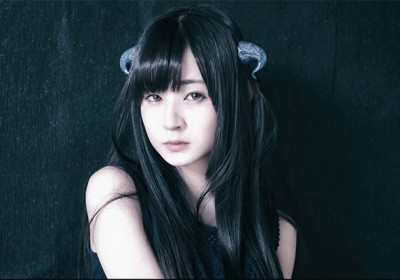
Beautiful Handmade Horns Will Make You As Cute As A Beast!
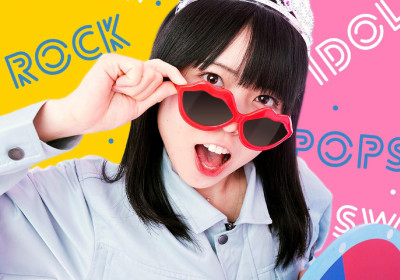
Risa Satosaki Reveals Everything in the MV for “S!NG”!


